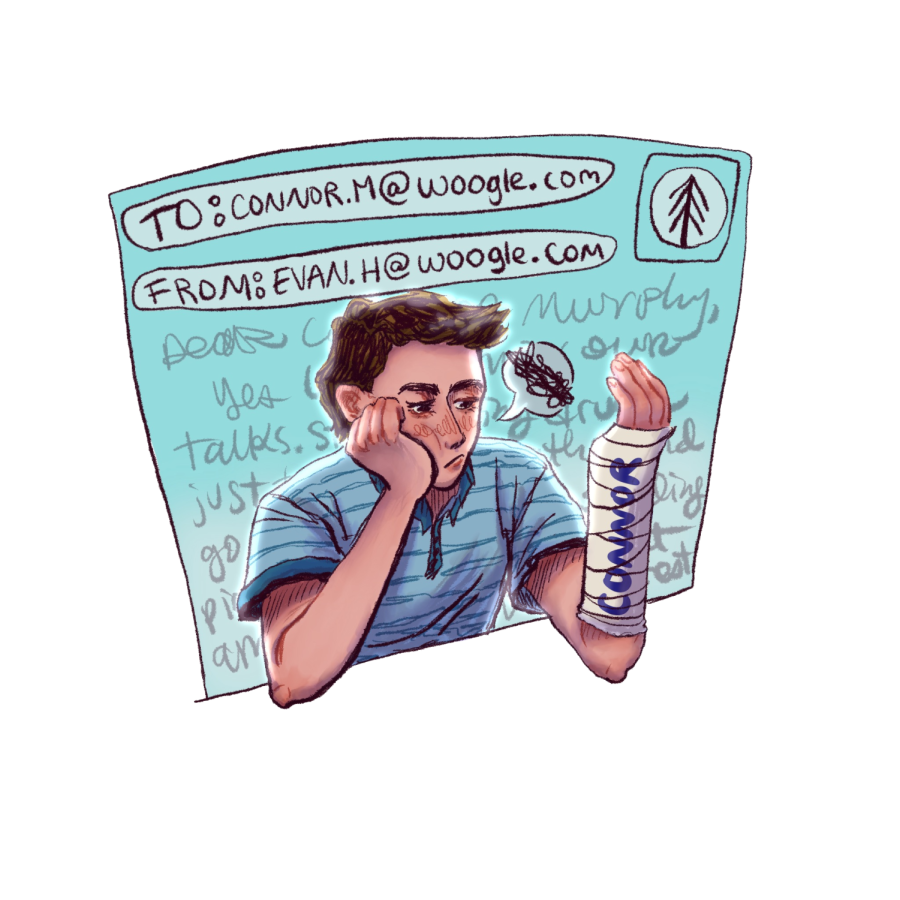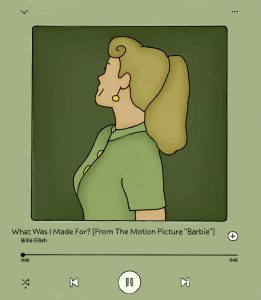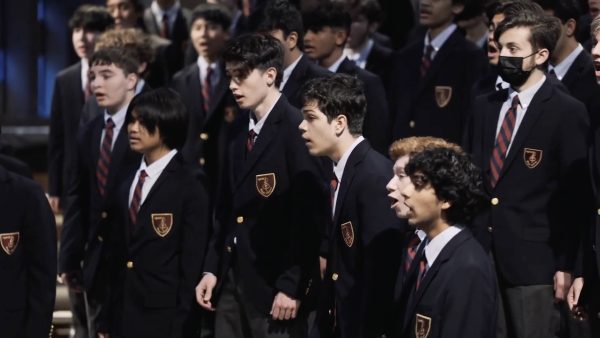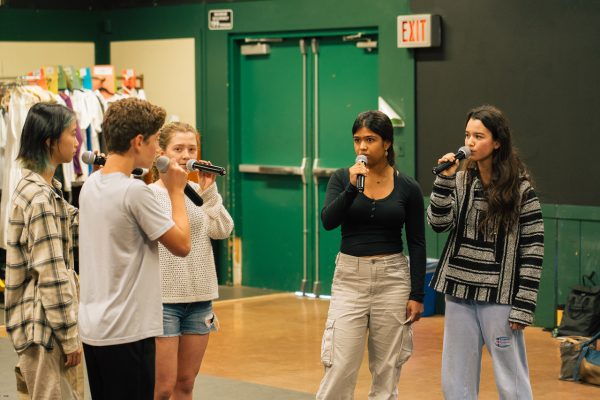Waving Through a Window: Dear Evan Hansen’s Message to Society
March 1, 2023
It was Dec. 2019 when I went to see acclaimed Broadway musical “Dear Evan Hansen” for the first time. The show, which is based on a book by Steven Levenson, follows high schooler Evan Hansen as he navigates the fallout of his lie regarding a classmate, Connor, who has committed suicide. As I prepared for the show, I knew it was “going to be a great day, and here’s why:” I was enchanted by the intriguing sound of the music.
Little did I know, there was a deeper meaning to the songs, to each lyric and melody. In hindsight, my 11-year-old mind didn’t have the ability and capacity to grasp the larger message behind “Dear Evan Hansen.”
It was only when I saw how the songs connected to the story that I realized that the writers had hidden messages in the songs. When listening to “Good For You” before seeing the show, for example, I never paid attention to the greater story being told through the lyrics. I thought that the words were just there to go along with the lovely notes, but that wasn’t true. When I realized that the song was about the other characters’ anger towards Evan, I started crying. I hadn’t expected the song to affect me that much, but it did. Something about the way the characters expressed their emotions had touched a part of me that I didn’t know existed.
Fast-forward to this winter when I went to see “Dear Evan Hansen” for the second time. This time, I took in prior knowledge from the first show and the discussions I had had with others. I went in with a more mature view; this time, I knew what to expect. As the show progressed, I was able to take note of details I hadn’t noticed before and understand how the writers weaved in societal issues such as addiction, social media, and mental health.
I discovered that the lyrics “On the outside always looking in, will I ever be more than I’ve always been? Cause I’m tap, tap, tapping on the glass. I’m waving through a window,” signify Evan’s feelings of isolation regarding human interaction — not him actually waving through his bedroom window. Analyzing these lyrics mean has helped me understand there is more than what’s on the surface. Perhaps this is why I love “Dear Evan Hansen” — it’s not just a show; it’s a message to society.











